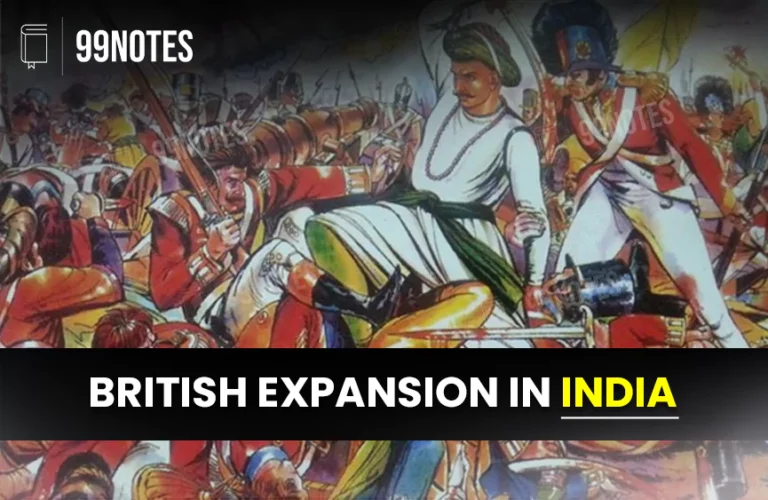Towards the Civil Disobedience Movement
The withdrawal of the Non-Cooperation Movement (NCM) and the imprisonment of Gandhi in March 1922 weakened the national movement, and it entered a passive phase. As a result, the nationalist ranks became disorganized, disintegrated, and demoralized.
Gaya Annual Session of the Congress (1922)
Two currents of thought emerged within the Congress after the NCM regarding the nationalist activities to be carried out during the passive phase:
- The Swarajists advocated for Council entry.
- The No-changers opposed Council entry and advocated for constructive work among the masses.
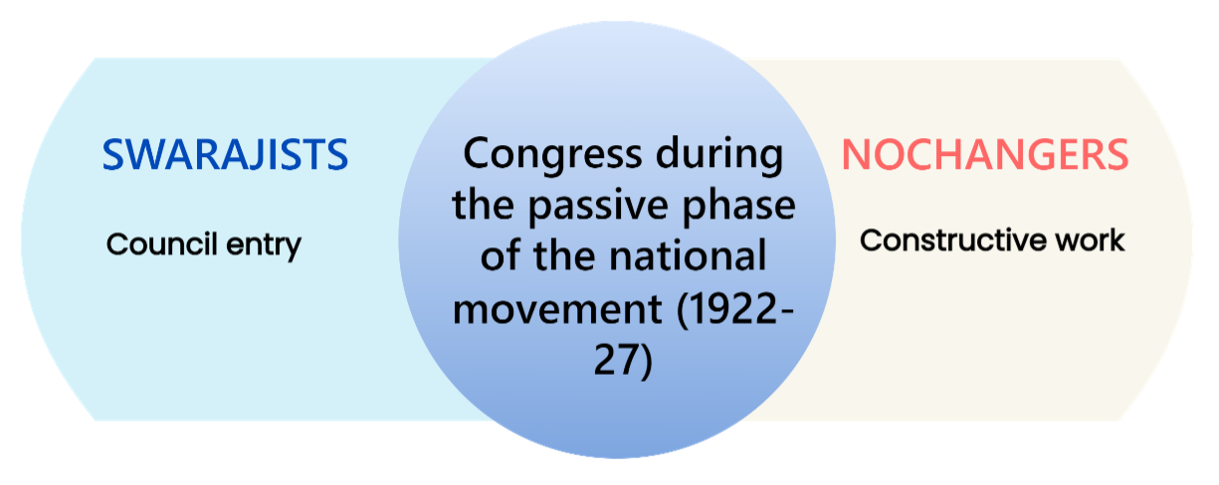
| Swarajists/Pro-changers | No-Changers | |
| Background | They were the nationalists who opposed Gandhi’s withdrawal of the NCM following the Chauri-Chaura incident of Feb 1922. | This stream of nationalists agreed to follow Gandhi’s decision to withdraw the NCM and continue the program of the boycott of the legislative councils. |
| Leaders | CR Das, Motilal Nehru, Ajmal Khan, Narasimha Chintaman Kelkar
Other leaders: Huseyn Shaheed Suhrawardy, Subhas Chandra Bose, Vithalbhai Patel. |
Vallabhbhai Patel, Rajendra Prasad, C Rajagopalachari, MA Ansari |
| Programme of action for the passive phase |
|
|
| Points of agreements | 1. Civil disobedience (CD) was not possible immediately.
2. No mass movement could be sustained indefinitely or for an extended period. Therefore, some breathing time is necessary for the nationalist forces to recover, rejuvenate and gather strength before the next round of mass struggle can be launched. 3. Both accepted the essentiality of Gandhi’s leadership. |
|
| Arguments they put forward | 1. Council entry would fill the temporary political void as the CD was not possible in the near term.
2. Works in the Councils, such as the speeches, electioneering, voting out the government, etc., would keep the public politically engaged and provide them with fresh avenues for political propaganda and agitation. 3. Council entry is complementary to the NCM. It is a continuation of the NCM but in the Councils. 4. Council entry would help the Congress maintain its stronghold in the Councils by frustrating the efforts of undesirable elements to weaken the Congress and the government’s actions to gain legitimacy for their laws. The aim would be to expose the legislatures as ‘sham parliaments’. 5. The Councils would not be used the way Liberals have used them for seeking a gradual transformation of the colonial state. Instead, they would be used to carry a struggle to overthrow the colonial government. 6. Politics of obstruction: They would obstruct the Councils consistently and continuously and make the government through them impossible. |
1. Constructive work is essential for preparing for the next round of struggle. Engaging in Parliamentary work would lead to the neglect of constructive work and work among the masses.
2. Revolutionary zeal would fade away. 3. Council entry would also lead to political corruption. o The Congress legislators eventually would abandon the politics of obstruction, get enmeshed in the imperial constitutional framework and start cooperating with the foreign government on petty reforms and piecemeal legislation. |
At the Gaya Annual Session, Dec 1922, presided over by CR Das, the programs of the two groups were put to the vote. The no-changers emerged victorious. As a result, C.R. Das and Motilal Nehru resigned from their respective posts in Congress and formed the Swarajist party.
The Swarajists
The Swarajist Party
- The Swarajist Party resulted from the Gaya Annual Congress Session (1922), which was presided over by CR Das.
- The party was formed as the Congress-Khilafat Swaraj Party of India on 1 January 1923, with CR Das as the President and Motilal Nehru as one of its secretaries.
- The party accepted the entire program of the Congress except for the boycott of the Councils.
Delhi Special Session of the Congress, September 1923
At this session, the two factions made a rapprochement. The INC suspended all propaganda against council entry and permitted the Congress members to stand as candidates and exercise their franchise in upcoming elections. This conciliation was informed by learnings from similar past mistakes, which included:
- The Surat split of 1907 between the moderates and the extremists was disastrous for Congress as an organization and the cause of the national movement.
- The only beneficiary of such in-fighting was the foreign government.
The Swarajists, on their part, acknowledged that only a mass movement forged outside the legislature had the real power to force the government to accept national demands. Moreover, the leadership of Gandhi was essential for the mass movement. Therefore, both groups needed to stay united and work as a team.
Elections to the Legislative Councils – November 1923
- Swaraj Manifesto – the election manifesto of the Swarajists:
- It took up a strong anti-imperialist position.
- Promised to wreck the sham reforms of the government within the councils and expose the councils as ‘sham parliaments’.
- A demand for self-government would be presented in the councils.
- The electoral performance of the Swarajists:
- Won 42 of the 101 elected seats in the CLA.
- A clear majority in Central Provinces
- The largest party in Bengal.
- Fair performance in Bombay and UP.
- Poor outcomes in Madras and Punjab which were disturbed by strong casteism and communal current.
- Post-election coalitions: In the CLA, they built a common front with the Independents led by Jinnah, the Liberals, and individuals such as Madan Mohan Malaviya. Similar coalitions were constructed in the provinces.
Gandhiji’s seal on the Council Entry Program
- Gandhiji was released from jail on 5 February 1924 on health grounds.
- Gandhiji viewed the obstructionist activities of the Swarajists in the Council as inconsistent with non-violent non-cooperation. However, well aware of the possibility of a split, and the government too was banking upon a split, he acted proactively and prudently.
- He did not wish to bring out his displeasure with the Swarajists in the open as he fully trusted in their bonafide and appreciated the courageous and uncompromising way the Swarajists had functioned in the councils. He was fully convinced they were not becoming a limb of imperial administration.
- Instead of talking in public over the ‘settled fact’ of council entry and appearing weak to the public, he thought it was best to speak to the Swarajists in person and work out a scheme.
- When the government launched a full assault on civil liberties and the Swarajists in Bengal under the pretext of fighting terrorism, using the Bengal Criminal Law (Amendment) Ordinance promulgated on 25 October 1924, Gandhiji took it as a threat to the national movement. At this point, he set aside his convictions against the council entry and openly supported the Swarajists.
- The Joint Statement of 6 November 1924
- Signed between Gandhi and Swarajists (CR Das and Motilal Nehru)
- It put an end to the strife between the no-changers and pro-changers.
- Swarajist Party would work in the legislature on behalf of the INC and as an integral part of the INC.
- Belgaum Annual Session of the Congress, 1924
- Gandhiji presided over this session. He gave the Swarajists a majority of seats on his Working Committee.
- Endorsed the joint statement of 6 November 1924.
Achievements of Swarajists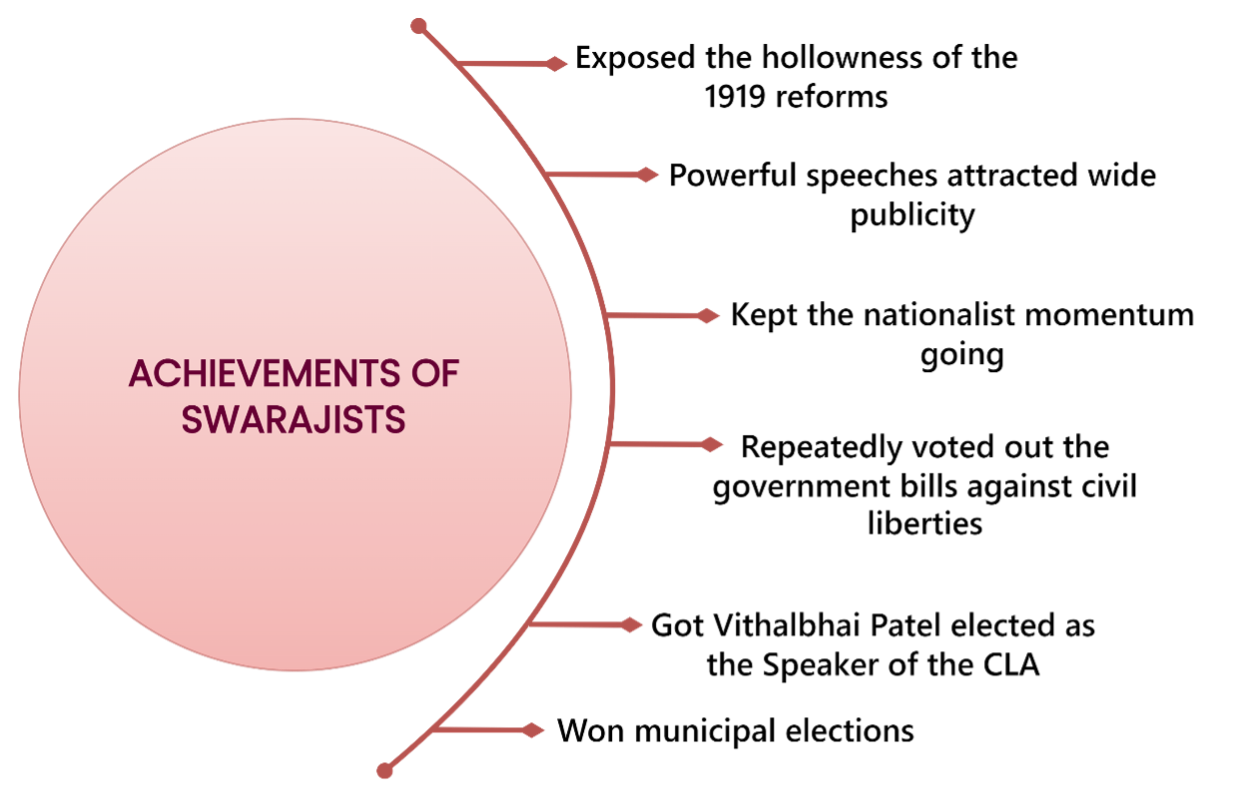
- Exposed the hollowness of Montagu-Chelmsford reforms by demonstrating that the reforms did not give any absolute authority but only a ‘semblance’ of power.
- Compelled the government to certify legislation repeatedly at both the central and in many provinces.
- Swarajists repeatedly voted out the budget grants.
- Attracted wide publicity primarily due to their powerful speeches in the Council on three major issues:
- The problem of constitutional advance leading to self-government. In the very first session, Motilal Nehru presented the national demand for framing a new constitution, which would transfer real power to India. It was repeatedly passed.
- Civil liberties, the release of political prisoners, and the repeal of repressive laws.
- The development of indigenous industries.
- Repeatedly voted out the government on the question of the repeal of repressive laws and regulations and release of political prisoners:
- Ex: Public Safety Bill 1928.
- Continuation of the nationalist momentum: They inspired the politicized people and kept their spirits alive during the stagnancy. The all-powerful foreign bureaucracy was humbled in the Councils, which thrilled the people.
- In March 1925, they succeeded in electing Vithalbhai Patel, a prominent Swarajist, as the President of the Central Legislative Assembly.
- Due to their works, nationalists captured many seats in municipal and other local bodies (during 1923-24). The local bodies’ offices headed by nationalists reinforced the no-changer’s outreach to the masses.
-
- Calcutta corporation – CR Das was appointed the mayor, and Subash Chandra Bose was its CEO.
- Vithalbhai Patel became the President of Bombay
- Vallabhbhai Patel was elected the President of Ahmedabad
- Jawaharlal Nehru and Rajendra Prasad became the presidents of Allabahad and Patna municipalities, respectively.
- The nationalists used this platform to carry out excellent work in education, sanitation, health, anti-untouchability, and khadi promotion, winning the admiration of friends and foes and often arousing popular enthusiasm.
Drawbacks of the Swarajist
- The emergence of communalism in the absence of a uniting factor like mass movements.
- Politics of obstruction had limitations, and further confrontations weren’t possible. Only mass movements could obtain real concessions. However, the Swarajists failed to build a policy of backing their work in the councils with mass movements.
- They couldn’t ably convince their coalition partners on every matter.
- Attachment to Posts: parliamentary privileges were irresistible for a few Swarajists.
- Loss of mass support: in some places like Bengal, they failed to support the tenants’ cause against the zamindars and, therefore, lost support among pro-tenant members, mostly Muslims.
Reasons for the Decline of Swarajists
- Later divided further into Responsivists and Non-Responsivists:
- Responsivists (1926): Reiterated cooperation with the government and held offices wherever possible to protect the so-called Hindu interests.
- Leaders – Lala Lajpat Rai, Madan Mohan Malviya, NC Kelkar, MR Jayakar.
- Non-Responsivists: ML Nehru. [Main leadership reiterated its faith in civil disobedience to prevent a split].
- Responsivists (1926): Reiterated cooperation with the government and held offices wherever possible to protect the so-called Hindu interests.
- Communal agenda: The Responsivists within the INC worked solely for the rights of Hindus. However, there was a marked difference between what they said and how they behaved.
- Lack of leadership: After the death of CR Das’s death in 1925, the group started declining.
- Civil disobedience: When the call for Purna Swaraj was taken in 1929, Swarajists had to withdraw from the councils.
Constructive works of the No-changers
The idea of constructive works
- The constructive programme was the product of Gandhi’s vision of a non-violent society and the importance of building self-reliant villages as a prerequisite for nation-building. It grew out of the knowledge he had grasped of the naked reality of our country at that time through his intense travels throughout the nation.
- According to Gandhiji, the chariot of the freedom struggle had two wheels –
- Political campaigns – which should lead to civil disobedience.
- Constructive programmes – As patriots, it was their moral duty and social obligation to work to regenerate society. As he mentioned, the constructive programme consisted of 18 items, of which the most important were Hindu-Muslim unity, removal of untouchability, prohibition, Swadeshi, and boycott.
Aspects of constructive work
- Spread Swadeshi and Boycott programme, particularly to the countryside.
-
- The concept of Swadeshi occupied an immense place in the Gandhian constructive programme. Gandhi’s definition of Swadeshi was comprehensive as it included Charkha (spinning wheel), Khadi (coarse cloth), and other indigenous industries.
- It also included the boycott of foreign cloth and liquor.
- Social reforms
- Working for Hindu-Muslim unity
- Work for removal of untouchability
- Empowerment of women
- Prohabition
- Ashrams emerged in Kheda and Bardoli, where young men, women, tribals, and lower castes worked together.
- Creation of fertile grounds for civil disobedience
- Spreading ideas of Satyagraha and non-violence
- National institutes were set up where students were trained for nationalism purposes.
- Road to Civil Disobedience led through constructive programs:
- The aim was to strengthen the social base so that the country could be pushed towards a mass national struggle in a disciplined manner.
- The Swarajists could ill-afford to ignore the programme as they knew that there might come a time when they would have to exit the Councils and engage in civil disobedience alongside those who refrained from participating in the councils.
- The constructive programme acted as a common platform for both the factions of the Congress-No-changers and the Swarajists.
- At the Gauhati session of the Congress, Motilal exerted all his influence on the Congress to adopt the programme of educating the people on their political rights and training them to acquire the necessary strength to win those rights by carrying out constructive programming.
- The Congress resolved in 1926 the establishment of a permanent publicity bureau for educating the masses on communal amity and good national life.
Pros of the constructive programme of the no-changers
Constructive work was necessary for India, where there were various social issues like untouchability, communalism, etc, prevailed. In this context, Constructive work was successful in the following:
- It helped Congress to win economic freedom and social and moral freedom, besides winning political freedom. These freedoms are harder than the political ones.
- Gandhi did not believe in political power. Instead, he had tremendous faith in the power of the people. But, he clarifies, “If Swarajists had power or office, it must be under service, not by manipulation of the vote.”
- The most successful outcome of constructive programmes was the emergence of a cadre of trained nationalists who later became the flagbearers of the various nationalist struggle Bardoli Satyagraha is one of them.
Criticisms
- Unfortunately, Gandhi’s basic social or political ideas were often not understood or followed by his close disciples. There were disagreements regarding the program of action.
- Critics argue that the reformist and reactionary nature of the constructive programme diluted the intensity of popular discontent, diverted the focus from the main issues, and postponed the revolution.
- The Constructive program did not propose a solution for the landless.
- Further, there were issues regarding the slow pace of work, high prices of Swadeshi products and the fact that the national education only benefited the rich.
Despite these limitations, the most successful outcome of constructive programmes was training the nationalists of Bardoli, who later became the flagbearer of the various nationalist struggles. Bardoli satyagraha is one of them.
Bardoli Satyagraha of 1928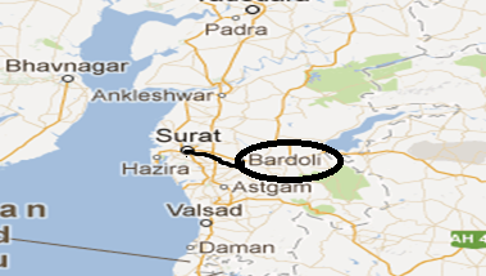
Background
- Gandhiji selected Bardoli in 1922 as the place from where Gandhiji would launch the civil disobedience campaign under the non-cooperation Movement (NCM).
- However, the Chauri-Chaura incident led Gandhiji to withdraw from NCM. However, in the process, the public of Bardoli underwent intense politicization and awareness of the political situation.‘
- Before the NCM, local leaders like brothers Kalyanji and Kunverji Mehta and Dayalji Desai carried out social reforms. At the same time, the political activists had set up many national schools, convinced students to leave government schools, conducted the boycott of foreign cloth and liquor, and captured the Surat municipality.
- During the N.C.M., Gandhi’s rebuke to the Congressmen regarding the neglect of lower castes of Bardoli under the Hali system propelled them to work in that direction.
Hali System
- The low-caste untouchables and tribal inhabitants of Bardoli were called Kaliparaj (dark people). The people from the higher castes were called the Ujalipraj (fair people).
- Under the Hali system, the Kaliparaj laboured as hereditary labourers of upper-caste landowners. Under this system, they were subject to exploitation of all forms, including sexual exploitation of the female members of the Kaliparaj community.
- Steps that the leaders took:
- A network of ashrams was set up.
- These worked for the education of the tribals.
- Kunvarji Mehta and Keshavjoi Ganeshji learned the tribal dialect and developed the ‘Kaliparaj literature’ with the assistance of the educated members of the Kaliparaj community. The poems and prose aroused the people against the Hali system.
- Night schools were started to educate the Kaliparaj. A school for the education of Kaliparaj children was set up in Bardoli town in 1927.
- The Kaliparaj members were urged to abjure intoxicating drinks and high marriage expenses, leading them to financial ruin.
- Annual Kaliparaj conferences were held in 1922 and 1927.
- Gandhiji presided over the 1927 conference. He renamed the Kaliparaj as ‘Raniparaj’ or the forest’s inhabitants.
- Jugatram Dave and Narhari Parikh conducted an inquiry and found the Hali system very disturbing.
- A network of ashrams was set up.
Outcome:
- The work against the Hali system gave the Ashram Congress workers a significant base among the Kaliparaj. They also worked among the landowning peasants, so a powerful no-tax campaign was launched in Bardoli.
No-rent Campaign of Bardoli
- In January 1926, the land revenue official of the Taluq recommended a 30% increase in the demand for land revenue over the existing assessment.
- The Congress leaders protested the rise by forming the Bardoli Inquiry Committee, which concluded that the increase was unjustified.
- In July 1927, the government revised the rate to around 22% due to the efforts of the Indian members in the Legislative Councils. But, this did not satisfy the peasants. Finally, they saw that the constitutionalists could do no more and were unwilling to lead a movement involving withholding the entire amount. So, they turned to the ‘Ashram’ group of Congressmen.
- Under the leadership of Sardar Vallabhbhai Patel and with the assurance of Gandhiji and the tacit support of the constitutionalist leaders, the Ashram group led a powerful no-tax campaign.
| Sardar Vallabhbhai Patel |
|
Launch and progress of the Campaign.
- After making peasants aware of the implications of refusing to pay rent to the government and after exhausting the peaceful method of petitioning the Bombay Government, Patel launched the Campaign.
- All occupants of the land were instructed to reject payment of the revised assessment until the government appointed an independent tribunal or acknowledged the existing amount as complete payment.
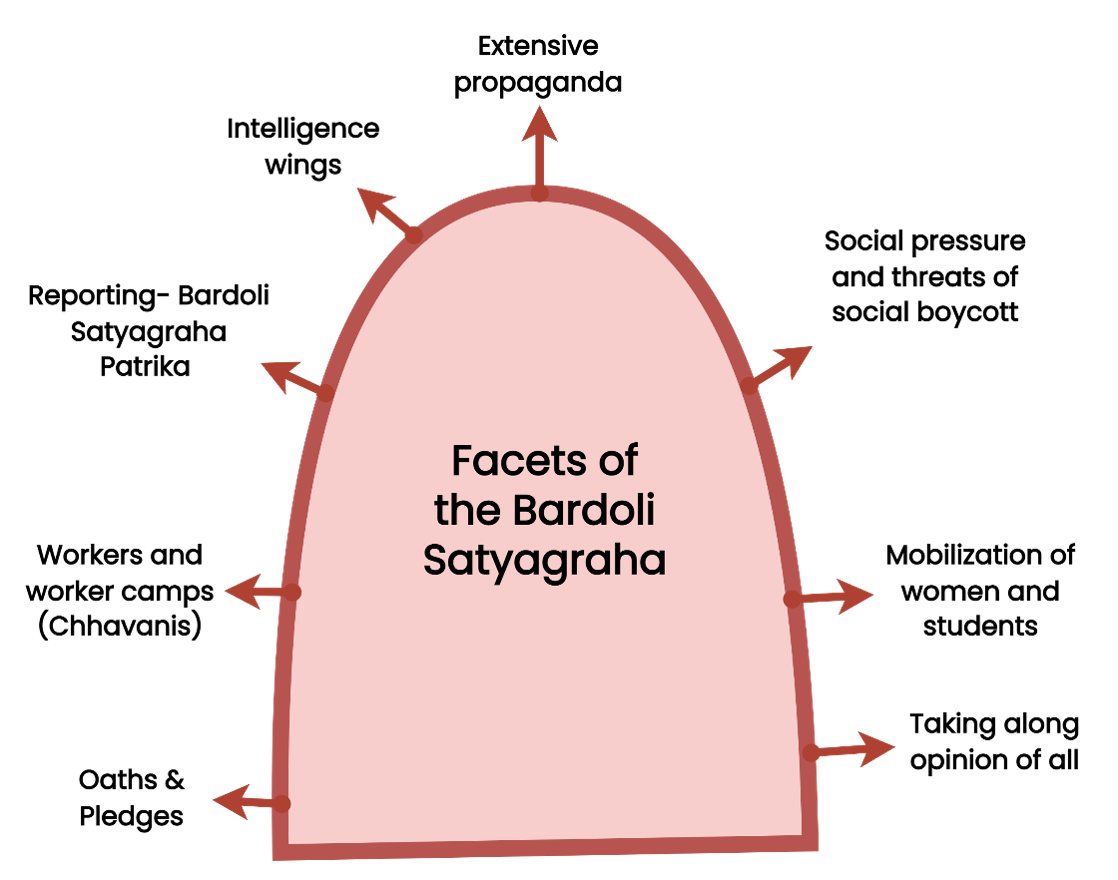
| Oaths and Pledges |
|
| Volunteers, workers, and worker camps |
|
| Reporting – Bardoli Satyagraha Patrika |
|
| Intelligence Wings |
|
| Extensive Propaganda |
|
| Social pressure and threats of boycott |
|
| Mobilization of women and students |
|
| Taking along the opinion of all |
|
Outcome of Bardoli Satyagarha
- Intense politicization swung the public’s mood all over the country against the British. Bombay textile mill workers went on strike. Communists and jathas of Punjab poured in for help. Peasants in other parts of the presidency threatened to agitate for demand revision in their areas. Bombay Youth held huge public meetings and mass demonstrations. Gandhiji shifted to Bardoli to lead the movement in case Patel was arrested.
- Broomfield, a judicial officer, and Maxwell, a revenue officer, conducted an enquiry and concluded that the increase was unjustified. Accordingly, it was reduced to 6.03%.
SIMON COMMISSION
In November 1927, the Government of British India declared the establishment of a Statutory Commission headed by Sir John Simon.
OBJECTIVE: Assess the Montagu Chelmsford Act (Government of India Act of 1919).
In 1930, the Commission submitted its report.
Recommendations of the Simon Commission
- To abolish the diarchy that was established in the 1919 Act.
- An extension to the autonomy of provinces by establishing a responsible government.
- Burma was included in its program.
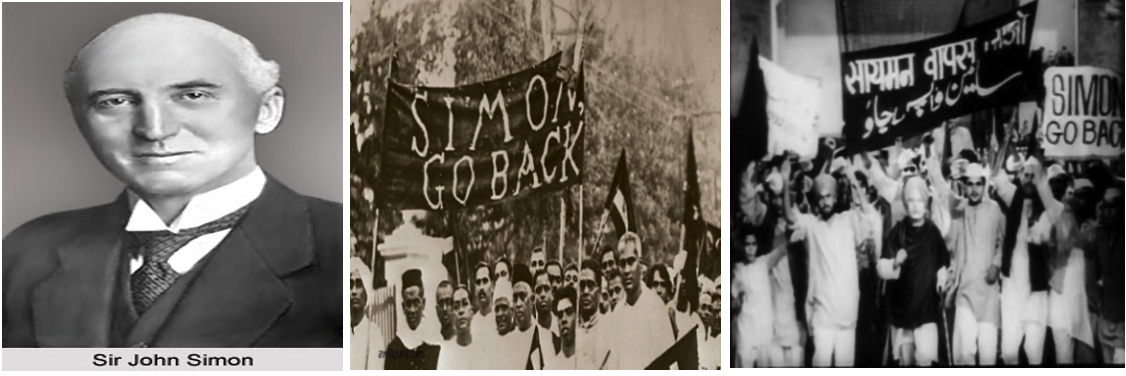
Reactions to the Simon Commission and its report:
- The Commission was welcomed throughout India with a black flag and slogans of “Simon, go back”.
- In its Madras Congress Session, the INC boycotted the Simon Commission. The Hindu Mahasabha liberals backed Congress’ decision to boycott the Simon Commission.
- The Muslim League, under Jinnah’s leadership, was also boycotted.
- Political groups such as the Justice Party and the Punjab Unionists have chosen not to boycott the Commission.
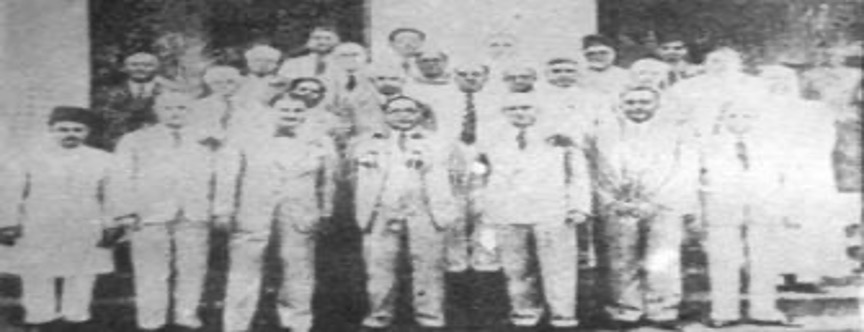
Reasons for the protests
- Racial Discrimination: It was an ‘all white’ commission with no Indian representative present at the ‘Simon seven’.
- No mention of the Nationalist demand: The demand for dominion status was not fulfilled.
It ensured the dedication and anger of multiple factions of India towards one bigger goal – complete independence from the British Government.
Hindu-Muslim Politics
After Gandhi’s withdrawal from the Khilafat Non-cooperation Movement, Muslim leaders largely remained aloof from the national movement. The Muslim League had many nationalist leaders like Jinnah, who tried to melt the ice between the League and the INC.
However, the Muslim leaders were divided into many factions. To negotiate with Congress, Jinnah decided to form a consensus.
The Delhi Proposals
- A group of prominent Muslim leaders of different factions met in Delhi on 20 March 1927 to frame a common demand. This session was presided over by A. Jinnah, and a proposal was drafted.
- Basic features of the Draft Proposal:
- The joint electorate is in place of a communal electorate with reserved seats for Muslims. It was a very welcome move.
- 1/3rd representation for Muslims in the Central Legislative Assembly.
- In provinces like Bengal and Punjab, seat reservations should be given to different communities according to their population.
- Bombay should be bifurcated, and an independent province, Sind, should be constituted.
- Reforms should also be introduced in the NWFP and Baluchistan.
- Problem with these demands:
- The consensus was not reached: The Muslim League was divided because of these proposals, and prominent Muslim League leaders, mainly from Punjab, under the leadership of Sir Muhammad Shafi, decided to part away for the Jinnah Group.
- Couldn’t be appreciated by Hindu nationalists: Any form of reservation was not acceptable to the Hindu nationalists.
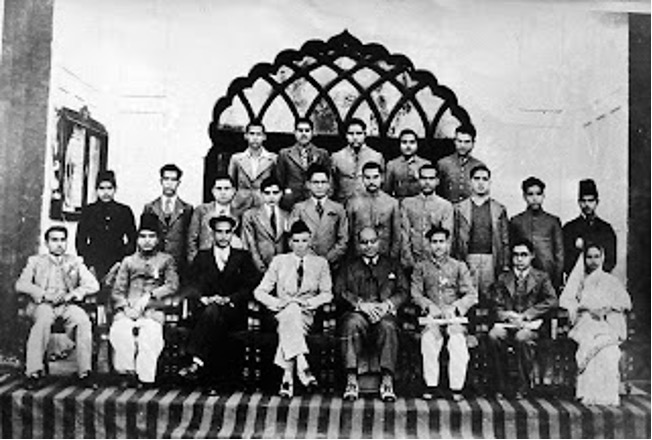
Madras Annual Session of the Congress (1927)
- This session had immense importance in modern India’s history. It took place under the presidency of Dr M.A. Ansari.
- Highlights of the Session:
- Proposal for Purna Swaraj/Complete Independence:
- Purna Swaraj’s proposal was given for the first time; the leaders concluded that “the goal of the Indian people is complete independence”.
- But it was opposed by Gandhiji. As for Gandhiji, Swaraj is an integral revolution that encompasses all spheres of life. Swaraj will not drop from the cloud; it will be the fruit of perseverance, hard work, courage and intelligent appreciation of the environment. And as of now, common India is not ready for it.
- On behalf of the resolution taken in the Delhi session of 1921 regarding foreign policy, a further resolution was passed by the INC to protest the deployment of the Indian troops in Persia, Mesopotamia, and China.
- The INC decided to boycott the all-white Commission “at every stage and in every form”.
- The Madras Session of Congress accepted some proposals by the Muslim League:
-
- The joint electorate is in place of a separate electorate with a reserved seat for minority Muslims.
- One-third reservation to Muslims in the Central Legislative Assembly.
- Representation of Muslims in Punjab and Bengal according to their population proportion.
The Muslim League decided to support the Congress’s decision. The Hindu Mahasabha rejected these proposals on the grounds that it is impossible to form new provinces depending solely on minority communities. They also rejected the proposal to reserve seats in Punjab and Bengal.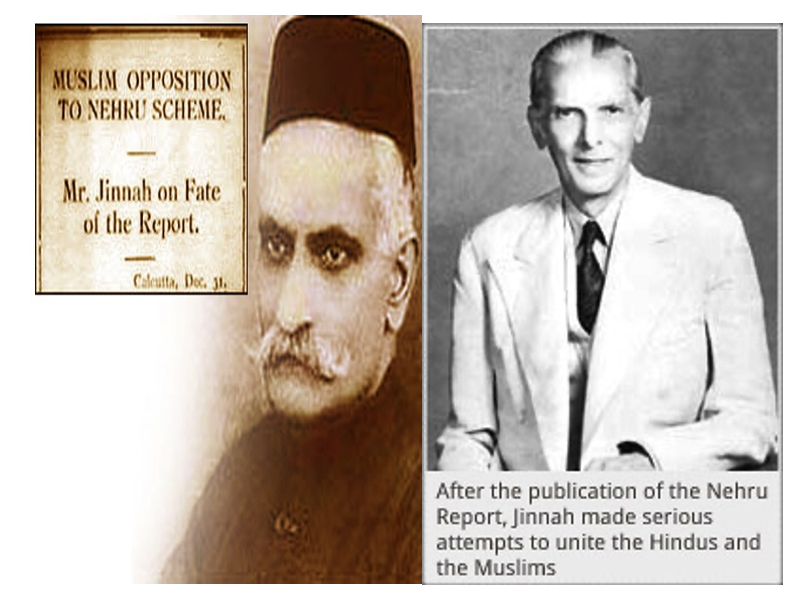
Nehru Report
- The Nehru Report 1928 was a report by a committee (by Lord Birkenhead, SOS) headed by Pt. Motilal Nehru, as the Indian leaders were asked to draft a constitution for their own country.
| Highlights of the Report
1. Dominion Status should be a desired form of government. 2. 19 Fundamental Rights o Equal rights for women o Freedom to form unions o A concept of Secularism was introduced. 3. Universal Adult Franchises should be introduced. 4. Provinces should be linguistically determined. 5. No separate electorate will be given under any circumstances. 6. Federal form of Government with Residuary powers to be vested in the centre. |
Nehru report acceptance of Select Muslim League Demands.
1. A joint electorate will be everywhere, but reservations for Muslims only where they were in the minority. 2. Only in provinces where less than 10% of the population – Jinnah opposed this. 3. Sindh was to be detached from Bombay only when dominion status was granted. 4. The political structure proposed broadly unitary – residual power with the centre. |
All-party Conference – Calcutta (Dec 1928)
- At the All-Parties Conference held at Calcutta in December 1928 to consider the Nehru Report.
Muslim Leagues proposed three amendments:
- 1/3rd representation to Muslims Central legislature.
- Residual power should be vested in provinces.
- Reservation for Muslims in Punjab & Bengal.
Unfortunately, the All-Party Convention in Calcutta did not adopt the Report in December 1928. Some communal leaders from the Muslim League, the Hindu Mahasabha, and the Sikh League objected.
Jinnah’s dissatisfaction
There were many factions among Muslims after the formation of the League. Jinnah went to the Safi Faction of the Muslim League. Muhammad Ali Jinnah proposed the Fourteen Points during a party meeting in March 1929 in response to Nehru’s Report.
- The Constitution should be federal, but the residuary powers should be vested with provinces.
- Equal autonomy must be given to all regions.
- All legislatures in the country and other elected bodies shall be constituted on the definite principle of adequate and effective representation of minorities in every province without reducing the majority in any province to a minority or even equality.
- 1/3 representation in the Central Legislature.
- The communal electorate shall continue. However, the decision was left to the Community when it abandoned its separate electorate and favoured a joint one.
- Any further territorial distribution shall not affect the Muslim-majority provinces in Punjab, Bengal and NWFP.
- All communities should be given complete religious liberty.
- Any resolution shall not be passed in any legislature if ¾ th members of any community oppose the bill.
- Bombay should be bifurcated and an independent province. Sind should be constituted. Reforms should also be introduced in the NWFP and Baluchistan.
- A fair share of all services should be given to Muslims.
- The Constitution should embody adequate safeguards for protecting the Muslim culture, education, language and personal laws, as well as for Muslim charitable institutions.
- 1/3rd of the seats shall be reserved for Muslims in both central and provincial cabinets.
- No change will be made to the Constitution without the provinces’ consent.
These points had great significance in a constitutional reform plan for safeguarding the political rights of Muslims in an independent India. These points greatly influenced the Muslim thinking (especially the Indian Muslims)for the next 20 years till the establishment of Pakistan in 1947.
The emergence of new political forces in the early 20th century
The international philosophers influenced Indian political thinkers during this phase, which was more pronounced than before. The reasons behind the emergence of these forces were:
- Rise of educated middle class
- Industrial revolution
- Emergence of Western philosophers like John Lock, Karl Marx, etc
- Role of press.
The new forces included:
1. Spread of Marxism and socialist ideas:
- This idea resulted in the rise of left-wing politics; leaders like Jawaharlal Nehru and Subhash Bose, inspired by the USSR Revolution and disappointed with Gandhian ideas and political programmes, started finding radical solutions for political, economic, and social ills of the country.
- Among the communist groups, the Communist Party of India was formed in 1920 in Tashkent by M.N. Roy and Abani Mukherji.
- In 1924, many communists like S.A. Dange, Muzaffar Ahmed, Shaukat Usmani, and Nalini Gupta were put in jail due to their involvement in the case of the Kanpur Bolshevik conspiracy.
- In 1925, the Kanpur Conference of the Indian Communists formalized the foundation of the CPI.
- In 1929, the Government counterattack on communists resulted in the arrest and trial of 31 leading left-wing leaders. Also known as the famous Meerut conspiracy case.
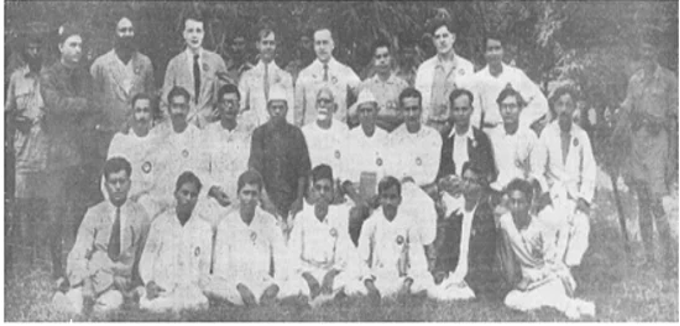
2. Peasants’ agitations: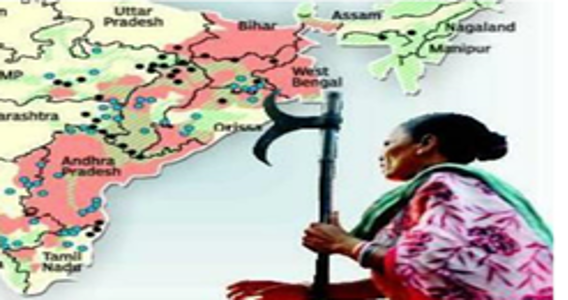
- In the Rampa region of Andhra, Peasant agitations took place under the leadership of Alluri Sitaram Raju. In Gujarat, the Bardoli Satyagraha, the most significant peasant agitation, took place under the supervision of Sardarballavbhai Patel etc.
3. Growth of trade union: 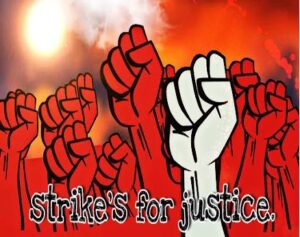
- AITUC, which led the trade union movement, was founded in 1920 under the presidency of Lala Lajpat Rai. Dewan Chaman Lai was its general secretary.
- The significant strikes during the 1920s included those in Kharagpur Railway Workshops, Tata Iron and Steel Works (Jamshedpur), Bombay Textile Mills, etc.
- In 1923, the 1 May Day was celebrated in India in Madras.
4. Caste movements:
- These movements could be divisive, conservative and, at times, potentially radical. e.g., Justice Party at Madras, Self-respect movement by E.V. Ramaswamy Naicker (Periyar)at Madras, etc

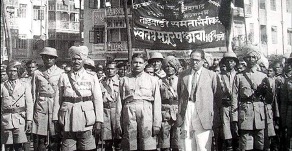
| Other famous caste movements | |
| Satyashodhak Samaj | J.phule(Maharashtra) |
| Mahar satyagraha | Ambedkar (Maharashtra) |
| Ezhavas | K. Aiyappan and C. Kesavan(Kerala) |
| Unionist Party | Fazl-i-Hussain(Punjab) |
5. Revolutionary militancy:
- They were also led to ‘the politics of the bomb‘ to give a positive lead to the people. HRA in Punjab, Yugantar, Anushilan groups, and later, the Chittagong Revolt Group under Surya Sen of Bengal are some famous revolutionary groups.

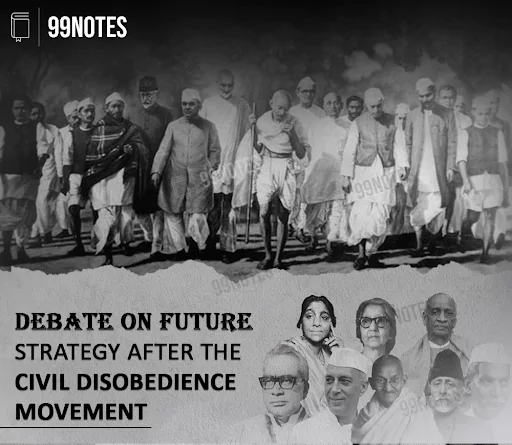
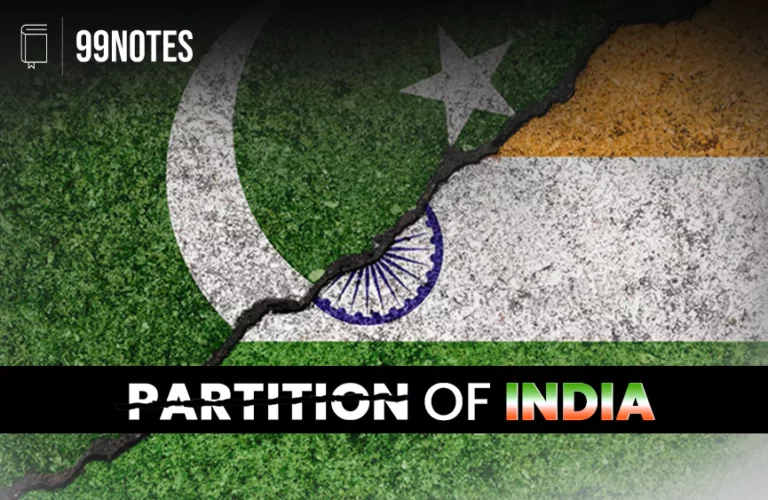
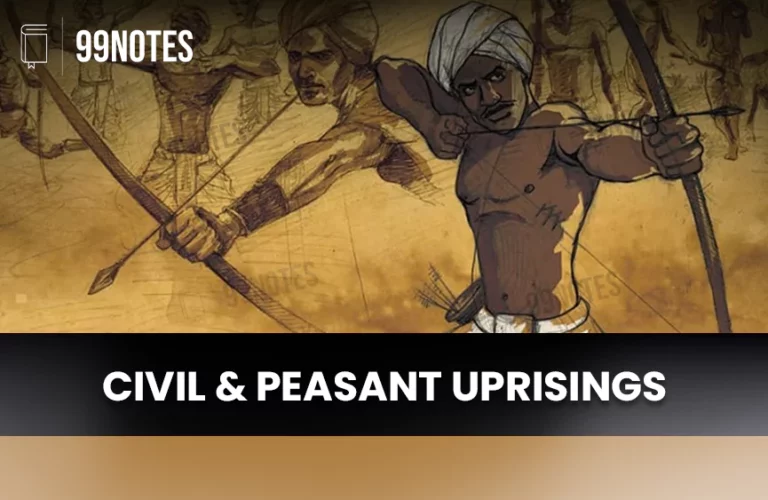
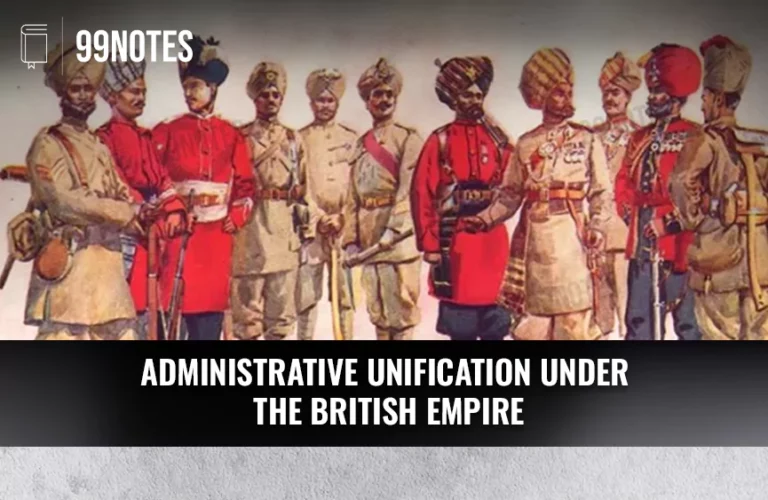
![Home Rule Movement (1916-1918): India'S Fight For Self-Governance [Upsc Notes] | Updated February 22, 2026 Home Rule Movement (1916-1918): India’S Fight For Self-Governance [Upsc Notes]](https://99notes.in/wp-content/uploads/2024/02/home-rule-featured-66698a5b2a805-768x500.webp)
